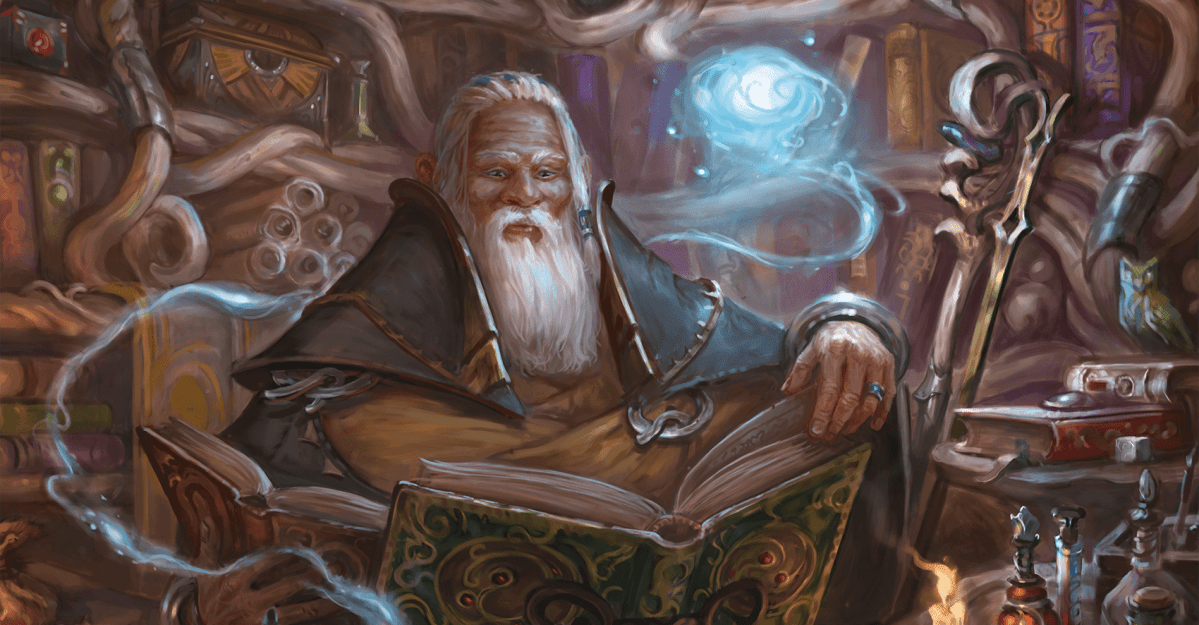Wizard is one of the 12 classes you can choose from in 2024’s revised Dungeon’s & Dragon’s Player’s Handbook (also known as One D&D, 5.5e, and a few other names). Wizards are (literally) by-the-book spellcasters, and their primary Ability is Intelligence.
Before we get started, a quick disclaimer: There’s no “best” anything in D&D. Classes tend to be well-balanced when it comes to damage output. More importantly, though, D&D is a roleplaying game as well as a combat game, so there’s more to it than stabbing monsters. And that diversity of situations — from picking locks to punting kobolds to seducing dragons — means “best” is entirely subjective.
Our Player’s Handbook (2024) D&D Wizard guide will walk you through the class and talk about some of the changes from D&D 5e.
Is Wizard the best class for you in D&D?
Wizards are a tough class to play, honestly. They don’t have a lot of HP and don’t get any armor, so they’re very squishy for a long time. That said, Wizards also have access to some of the most powerful spells in the game. If you’re willing to sacrifice brawn for brains, a Wizard can quickly become a force on any battlefield.
Inspiration for your Wizard
Wizards have such a clearly defined image to them that it can be nearly impossible to pull yourself away from “pointy hats and robes.” But D&D is a game about thinking out of the box whenever possible, and there are lots of other examples for you to use to create your magic-slinging genius:
- The chosen one archetype conjures the image of a lot of different characters, but Paul Atreides from Dune is one of the more interesting ones for Wizards — specifically for Divination enjoyers. These are characters that have a destiny they must fulfill and are burdened with purpose. While you may not spend most of your time wielding a blade, Paul’s struggles with power and destiny make him a great inspiration for Wizards.
- Wizards are smart, so leaning into the genius archetype can get you away from just the sparkly hands and big sticks idea. Think of characters like Maester Aemon from Game of Thrones (or any Maester, really). Your brain (and lock of Charisma) is what differentiates you from a Sorcerer, so pulling from booksmart characters will help you build a strong foundation.
- The reckless Wizard plays a little more into the archetype that we’re all familiar with, but is about the pursuit of magical knowledge and power. It can certainly be with good intentions, but characters like Howl from Howl’s Moving Castle, Dr. Strange from Marvel, or even Mickey Mouse often stretch themselves too thin with the power that they’ve been gifted.
- The classic spell-slinger is a classic for a reason, and while coming up with a unique idea is awesome, it’s hard to beat the classic Gandalf-like Wizard. Mysterious, aloof, but inherently good, these Wizards really ground your party in that fantasy setting and are easy to nestle into. You can always find the nuances that make them unique as you go.
What’s new for Wizards in One D&D?
No matter what class you end up picking, One D&D changes the way characters are created. Specifically, the Background you choose now comes with an Ability Score improvement (one point each in three Abilities, or two points in one Ability and one point in another). In addition, every character gets an Origin Feat. We’ll deal with both of those changes below.
One D&D’s Wizard class moves around some of your choices as you level up. While 5e had you choose an Arcane Tradition at level 2, you now choose a Wizard Subclass at level 3 (which is basically the same thing). In One D&D, the feature you get at level 2 is Scholar that grants you Expertise in a skill.
One D&D also streamlines some of the math involved in your prepared spells — instead of a formula involving modifiers and levels, you’ve got a flat number from your Class.
Wizard class features overview
- Primary Ability: Intelligence
- Hit Point Die: d6 per level
- Saving Throw Proficiencies: Intelligence and Wisdom
- Skill proficiencies: 2 of: Arcana, History, Insight, Investigation, Medicine, Nature, Religion
- Weapon Proficiencies: Simple
- Armor Training: None
You start with six level 1 spells and add 2 more each time you level up. This is the backbone of your class, and you’ll be able to learn more and more powerful spells every step of your journey.
Any spellcaster can cast any spell with the Ritual tag so long as they have the spell prepared. A Wizard’s Ritual Adept feature takes away the prepared requirement (so long as the spell is in their spellbook).
Whenever you take a short rest, you can recover some of your spell slots. This ability grows in power as you level up, allowing you to regain multiple low level spells or a single medium level spell.
How to build an effective Wizard
When you first make your character, you’ll need to assign your attribute points. For Wizards, you’re looking to build an extremely intelligent caster who won’t fall over after a single hit, so here’s your priority list:
- Intelligence
- Constitution
- Dexterity
- Wisdom
- Charisma
- Strength
Best Wizard Backgrounds and Origin Feats
Backgrounds in One D&D are a way to codify your character’s personal history into their stats. Backgrounds give you a bump to your stats, a couple of skills, tool proficiencies, and an Origin Feat.
For Wizards, let’s start with anything that lets you bump Intelligence — Acolyte, Artisan, Criminal, Guard, Merchant, Noble, Sage, or Scribe.
Here, Sage is the best bet if you’re just starting out. Its Magic Initiate (Wizard) Origin Feat gets you an extra two cantrips and one level 1 spell. Even better, that one spell is always prepared and gets one free cast per day. So if you’re not used to using a magic user, it gives you more options with less prep time.
You don’t pick a Wizard subclass until Level 3, but you’ll want to think about where you’re heading pretty early on — especially in terms of Background and Origin Feat (above).
As an Abjurer Wizard, you excel in Abjuration magic — go figure. This makes you very good at protecting yourself and allies via shields.
At level 3, you’ll be able to create an Arcane Ward around yourself, which is able to take a good chunk of damage before it’s depleted. You’re even able to restore the barrier by casting Abjuration spells, otherwise it comes back fully with each Long Rest.
At level 14, you gain Advantage on saving throws against spells and have Resistance to spell damage, both of which are huge for keeping you alive.
Diviner Wizards are one of the coolest subclasses in the game, because of their main feature: Portents. At level 3, you’ll roll two d20s at the end of each Long Rest. You can then use these two rolls to replace any roll made by you or a creature you can see. While you have to call your shot before the roll is made, this means you can guarantee a critical success or fail if you get lucky with your portents. Think of the foresight of Paul Atreides from Dune.
At level 14, you’re able to roll a third portent, making this feature even more powerful. If you’ve ever wanted to make your DM very upset, try casting Befuddlement on their big bad and then forcing them to fail the saving throw with a portent you rolled earlier that day.
Evoker Wizards excel at using evocation spells, which are the ones that cause big explosions and elemental effects. If you just want to hit enemies with spells really hard, this is the subclass for you.
At level 6, Evoker Wizards gain the Sculpt Spells ability, which allows you to save allies inside the radius of your spells, protecting them from harm — the way Doctor Strange might brush his friends out of the danger zone. Normally when you throw a Fireball, it blows up everything, which isn’t super fun for your local Barbarian who is probably toe-to-toe with the big bad you just burnt to a crisp. But Evoker’s can get their damage off without making their friend across the table roll a new character.
At level 14, you can even make some of your low level spells deal max damage by taking a bit of bonus damage yourself.
The Illusionist is the trickster Wizard’s cast of choice, but more like Mysterio from Spider-Man and less like Loki.
At level 3, you’re able to cast enhanced illusions that you can control from much farther away. If you’re fighting dumb monsters and have a smart DM, you can use tactics like this to win entire fights for your team before they can begin.
These illusions get particularly powerful at level 14, when you can temporarily make them real for a short period of time.








Comments are closed